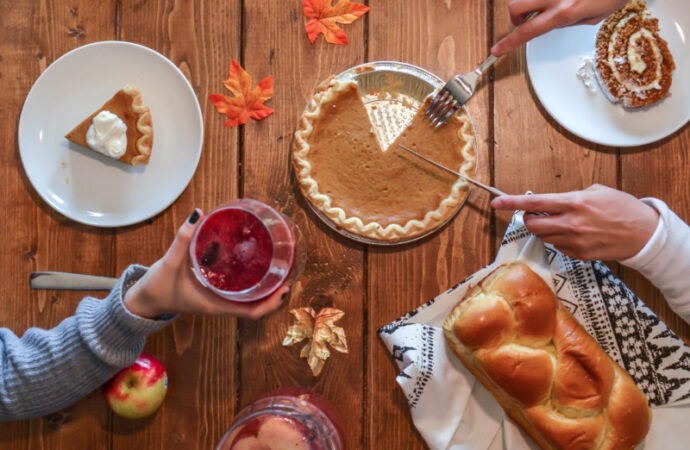About 18 months ago, I was reading for review Rachel Hollis’s self-help book Didn’t See That Coming: Putting Life Back Together When Your World Falls Apart. At one point, Hollis is talking to her friend Greg and apologizes for sounding “a bit like Pollyanna.” Greg asks if she’s read Pollyanna. When Hollis says no, Greg explains that he has overheard his wife reading it to their children. He then says, “Pollyanna turns a negative into a positive at least a hundred times in that book. That’s not something to be ashamed of, that’s something to be proud of.”
One book often introduces us to another, and Hollis brought me to Eleanor Porter’s story of Pollyanna, an orphan girl who comes to live with her wealthy Aunt Polly and quickly introduces her aunt and the entire town to the Glad Game her father taught her. In this game, no matter what the circumstances—loneliness, illness, severe disappointment—players must think of something to be glad about. By these rules, for example, the man whose house burned down might be glad his wife and children safely escaped that inferno.
Some find Pollyanna’s use of the word glad annoying, a sort of over-the-top optimism, a misplaced sentiment. They do have a point in that glad is usually perceived as delighted or pleased. But perhaps if we substitute the word grateful for glad—“Well, the house and all my possessions are gone, but I’m just grateful my wife and children are here with me”—we might hit on a more accurate sense of what we intend.
If we make that exchange of grateful for Pollyanna’s glad, we also arrive at the heart of why we celebrate Thanksgiving.
In the winter of 1620–1621, nearly half of the 102 settlers who founded the colony of Plymouth in the New England wilderness died of disease or privation. The Pilgrims were as cut off from England and any possible assistance as if they were on the far side of the moon. Yet that next spring and summer, the English-speaking Indian Squanto taught the Pilgrims to grow the food that would ensure their survival through another winter. In the fall, the Pilgrims had a three-day festival celebrating their harvest, inviting 91 Native Americans to join them.
We Americans still celebrate this day of thanks 400 years later. Though our trials are not nearly as severe as those endured by the Pilgrims, we face our own special challenges this November: the rocketing costs of gas and groceries, the ugly political divisions among our people, and a general sense of malaise—of feeling lost in a wilderness of our own making. Meanwhile, the Pollyannas among us are few, the doomsayers many.
Yet we might remember, at least on this one day of the year dedicated to giving thanks, to express our gratitude for our blessings and our benefits. Some of us may have trouble excavating these treasures from our personal hardships, but if we dig deep enough, we can find them. These objects of our gratitude may be trivial, they may be grand, but they are there.
And one blessing we may overlook is the fact that we are Americans.
In William Bradford’s Of Plymouth Plantation, we find this entry:
Thus out of small beginnings greater things have been produced by His hand that made all things of nothing, and gives being to all things that are; and, as one small candle may light a thousand, so the light here kindled hath shone unto many.
That small candle, even in the shadows that today darken our land, has for centuries shone its light unto the world, becoming a beacon of liberty kept aflame by the generations gone before us.
Only the living can keep that candle burning, which means it’s up to us to preserve our freedoms and our way of life. For that responsibility we should be grateful as well. It’s a burden, but protecting and promoting liberty is also an enormous privilege, and we should rejoice that we are the guardians of the flame.
As Pollyanna says, “… if God took the trouble to tell us eight hundred times to be glad and rejoice, He must want us to do it—SOME.” There’s plenty to complain about this year, but there are also certainly some things to be thankful for. This Thanksgiving seems like the perfect day “to be glad and rejoice.”
—
Image credit: StockSnap-Element5 Digital, CC0
3 comments















3 Comments
Terry C
November 24, 2022, 2:47 amThe attitude that folks often take toward positive speech and activity is painfully common these days. When I am in a rotten mood, the last thing I want is a cheerleader coming up to me talking about gratitude. It is at just such moments we most need to be aware and grateful. It is at our low ebb we should express our thankfulness boldly. I have found that such an exercise often makes me feel better, more purposeful, and ready to face the challenges before me. An incredibly happy Thanksgiving to you, Mr. Minick. God Bless!
REPLYJB
December 1, 2022, 8:11 pmAmen! Nice piece, Jeff!
REPLYEliza
August 5, 2025, 3:33 pmI was diagnosed with ALS (Amyotrophic Lateral Sclerosis) four years ago. Over time, I faced worsening muscle weakness, movement issues, and constant fatigue. Despite medications and expert care, my condition kept progressing and my hope was fading.Last year, I decided to try an herbal treatment program from NaturePath Herbal Clinic. I was skeptical, but within a few months, I noticed real changes: Improved muscle function and coordination, Increased stability and energy
REPLYA renewed sense of hope and control, It’s truly been life-changing. If you or a loved one is battling ALS, I highly recommend exploring their natural approach. It made a real difference in my journey.
http://www.naturepathherbalclinic.com